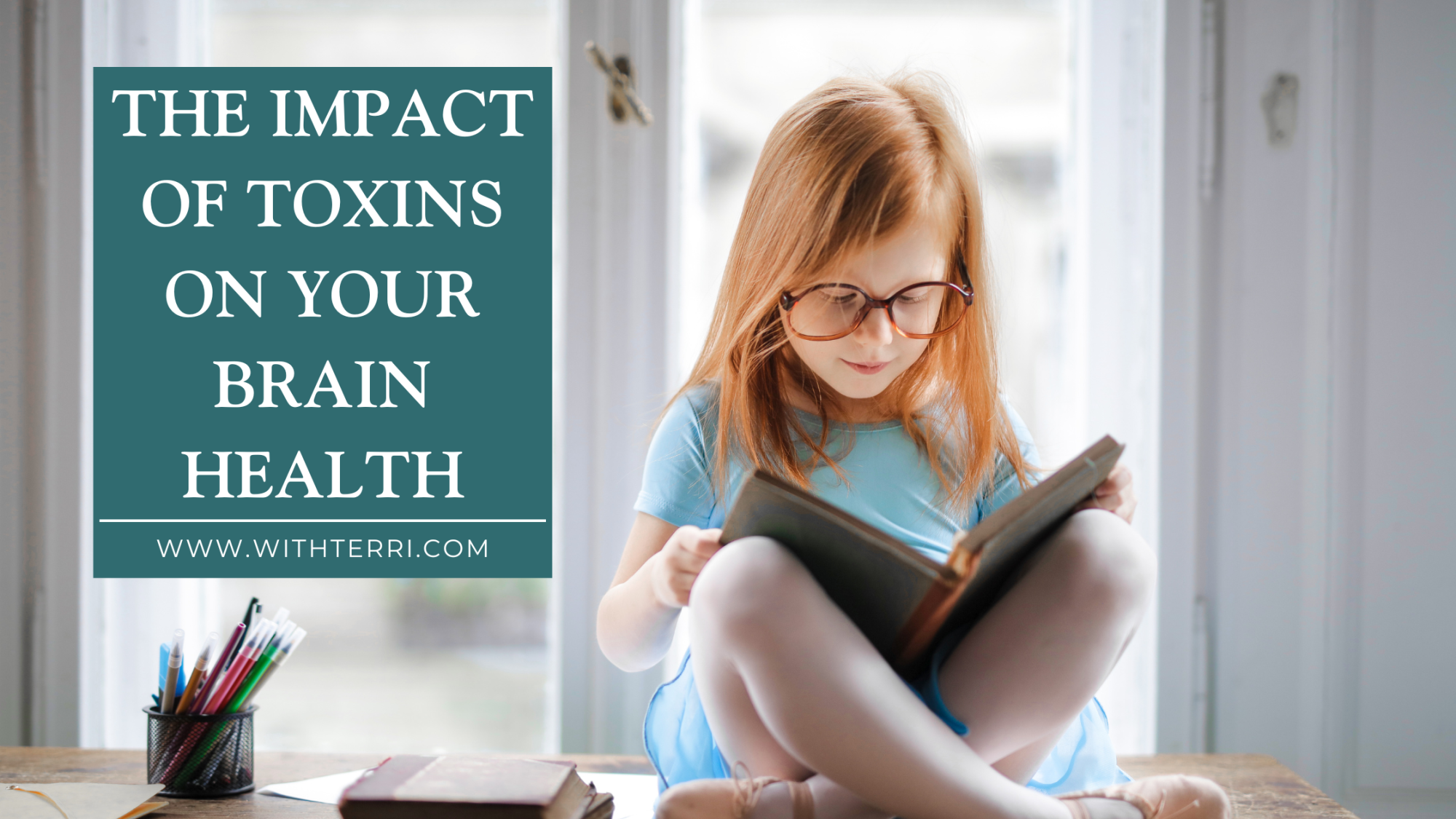
As moms, your top priority is keeping your family safe and healthy. You make sure they eat organic and exercise regularly but did you ever think of the impact of toxins on your brain? Yes, exposure to harmful chemicals and toxins can impact your brain health and functionality, leading to a variety of cognitive and neurological problems. In this blog post, we will explore a few different types of toxins, and their effects on brain health and provide some practical tips to minimize your exposure.
Toxic Chemicals
Toxic chemicals can enter our bodies through many ways including food, air, and water. Some examples of toxins that can impact your brain health include lead, mercury, pesticides, and phthalates. These toxins can cause oxidative damage to the brain, which can lead to cognitive impairment, memory loss, and behavioral issues. Lead and mercury, in particular, can cause significant damage to the brain, especially in children, leading to developmental delays, learning difficulties, and lower IQ.
Pesticides
Apart from the above toxins, pesticides are also widely used in our daily lives, especially in the farming industry. These chemicals not only harm the environment but also our brain health. Studies have found that exposure to pesticides can lead to depression, anxiety, and cognitive decline. Pregnant women and children are more vulnerable to the harmful effects of pesticides, including reduced neurological function.
A 2022 study suggested that chronic exposure to dietary pesticides can affect gut microbes and trigger a cascade of changes leading to neurodegenerative diseases.
Plastic manufacturing and processing companies use phthalates, which can be found in many everyday consumer products like toys, food packaging, etc. These chemical compounds have been linked to developmental problems, lower IQ, learning disabilities, and behavioral issues in children. According to some studies, exposure to phthalates during pregnancy can impact the brain development of fetuses.
To minimize the impact of toxins on your brain health and functionality, you can take the following steps:
Eat Organic: Choose organic produce as much as possible to avoid pesticides and other harmful chemicals.
Remove Food Coloring and Dyes: Studies have linked Red Dye No. 3 to increased hyperactivity and restlessness in children who consumed just 1mg per day compared to those whose diets did not include the dye.
Reduce the Use of Plastic: Opt for glass containers instead of plastic to store food and beverages, and avoid using plastic utensils and straws.
Check the Labels: Choose products that are free of phthalates, parabens, and other harmful chemicals. Always check the labels before purchasing anything.
Stay Hydrated: Drink filtered water to reduce exposure to harmful chemicals like lead.
Final Thoughts
Exposure to toxins can have detrimental effects on your brain health and functionality. As moms, it's important to be aware of the different types of toxins and their sources to protect your family's health. By making small changes in your daily routine, you can ensure that you minimize your exposure to harmful chemicals to your child’s brain function so that she can lead a healthy and fulfilling life.
If you would like to link arms and have someone in your corner help you with this process, feel free to reach out to me. I really enjoy helping moms enhance their home environment so it's a safer place to live for them and their families.
AFFILIATE DISCLAIMER: I’m a proud affiliate for some of these tools and products that are suggested on this page and throughout my site. If you click on a product and make a purchase, I may earn a small commission at no extra cost to you. My recommendations are based on knowledge and experience and I recommend them because they are genuinely useful, not because of the small commission I may receive |




















0 Comments